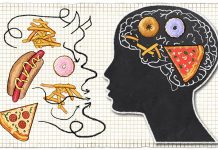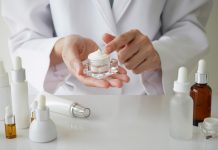Whether male or female, as you age, hormone levels will start to decline. But the process happens a little differently when it comes to men and women. The signs and symptoms of these conditions will also differ between the sexes. If you’re over the age of 45 and starting to worry about either of these -pauses, then you’ve come to the right place. We’ll tell you everything you need to know about andropause, menopause, and how to stay happy and healthy as you age.
Andropause in Men – How to Keep Your Testosterone High as You Age
Unlike menopause in females, andropause in men is more of a slow and gradual process. It’s so slow and gradual, in fact, most men may not even notice the symptoms right away. Some of the symptoms include:
- Sexual changes like low libido, erectile dysfunction, or even infertility
- Sleeping too much or too little compared to your regular sleep pattern
- Mental or cognitive problems like lethargy, depression, or trouble concentrating
- Hair loss
- Hot flashes (yes, men can get them too)
- Increase body fat
- Muscle deflation and/or a lack of strength
You could always let mother nature take its course and deal with these symptoms however you and your doctor see fit. But if you want to hold on to your youthful, manly vigor for as long as possible, there are a few diet and lifestyle choices you can make to keep your testosterone levels high and healthy.
You can start by lifting weights, If you aren’t already. The more you exercise your muscles with heavy lifting, the more testosterone your body will produce in order to preserve muscle mass or build more muscle tissue.
You can also start supplementing with zinc. Zinc is the most important mineral there is when it comes to producing the testosterone molecule. Most healthy, adult males need 40 mg of zinc per day to keep testosterone levels healthy. You can also get zinc by eating more red meat, oysters, and legumes.
Lastly, try dedicating a little more time and effort to your two favorite bedroom activities: sleep and sex! Your body produces more testosterone when you get healthy amounts of deep slow-wave sleep. And do we really have to explain to you why having more sex boosts your testosterone levels? We didn’t think so.
Menopause in Women – Recognizing the Symptoms

Most women don’t receive an official menopause diagnosis until after they’ve gone 12 months without a menstrual period. But in the months leading up to the natural end of their reproductive years, they can experience a ton of symptoms signaling its arrival:
- Vaginal dryness
- Irregular periods
- Hot flashes
- Mood swings
- Weight gain
- Chills
- Night sweats
- Thinning hair and/or dry skin
- Sagging breasts
The symptoms of menopause can range from subtle to almost unbearable. When the symptoms become so severe that it interferes with a woman’s ability to live in normal, healthy, happy life, medical intervention may be required. It’s also important to maintain regular doctor appointments, tests, and screenings in order to stay as healthy as possible. Doing so will help you avoid or reduce the severity of common menopause complications, such as:
- Cardiovascular disease
- Osteoporosis (bone loss)
- Urinary incontinence
- Sexual dysfunction
- Weight gain and obesity
It is not always medically necessary to treat menopause. For some women, the symptoms are slow and gradual and do not interfere with their ability to function normally. But for women who feel like the symptoms are too severe to bear, there are a variety of treatment options.
Hormone replacement therapy is a common option. It may involve doses of estrogen or estrogen and progestin, depending on whether or not you have had a hysterectomy. But the process is starting to become controversial. Some scientific data suggests that it can increase your risks for cardiovascular disease and breast cancer.
For hot flashes, prescription medications such as low-dose antidepressants, anti-seizure medications, or blood pressure medications can be used to reduce their severity or eliminate them altogether. They’re more commonly prescribed for women who cannot undergo hormone replacement therapy. Lastly, menopausal women will likely start to take prescription meds for the prevention or treatment of osteoporosis. You can also start supplementing with vitamin D if you are concerned about bone loss.
As you head towards the end of your lifespan, your fertility – and the hormones responsible for it – will naturally decline. But that doesn’t mean that your overall quality of life has to decline with them. Talking to your doctor and using appropriate treatment methods for andropause and menopause are great ways to feel young and useful for as long as you can. You can also make smarter diet and lifestyle choices to keep your body healthy and happy.






















































